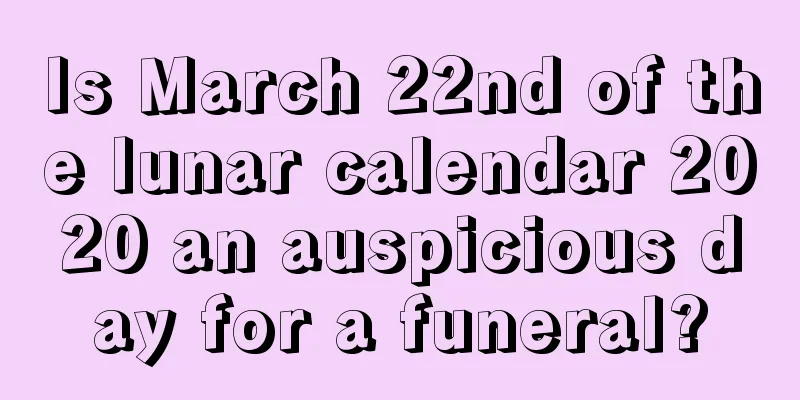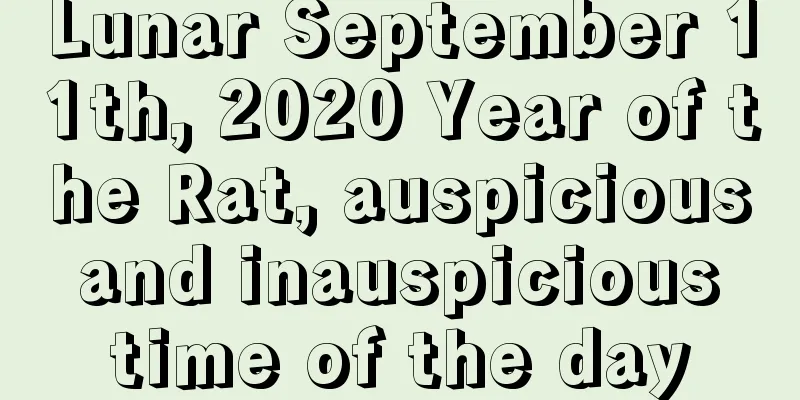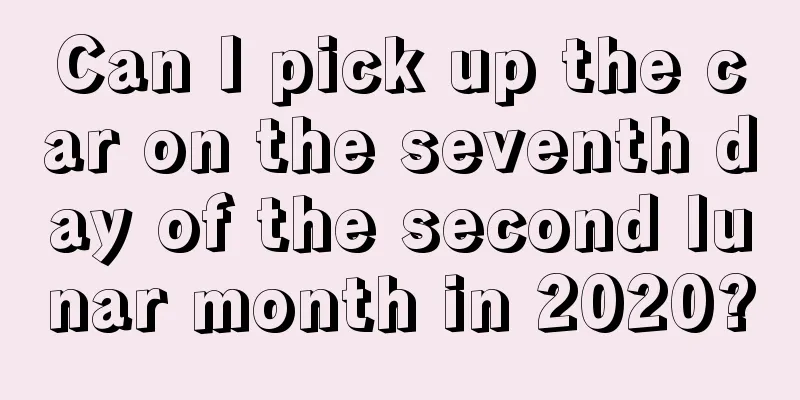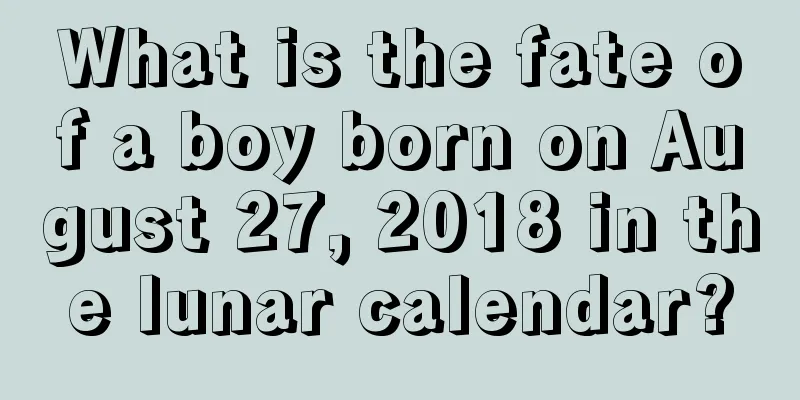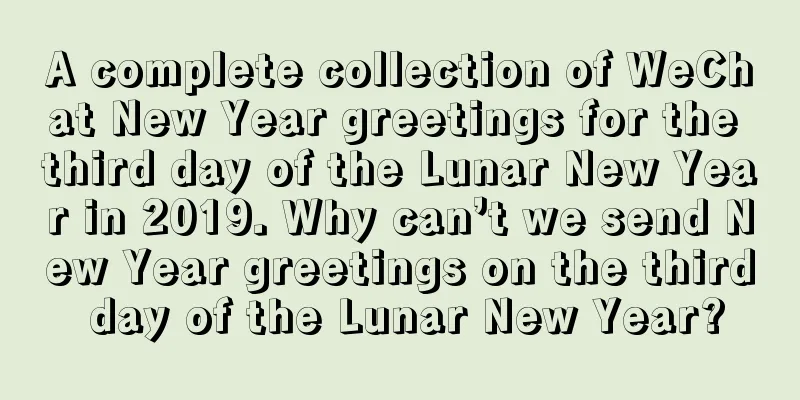What are the customs and practices during Jingzhe? What do the three signs of Jingzhe mean?
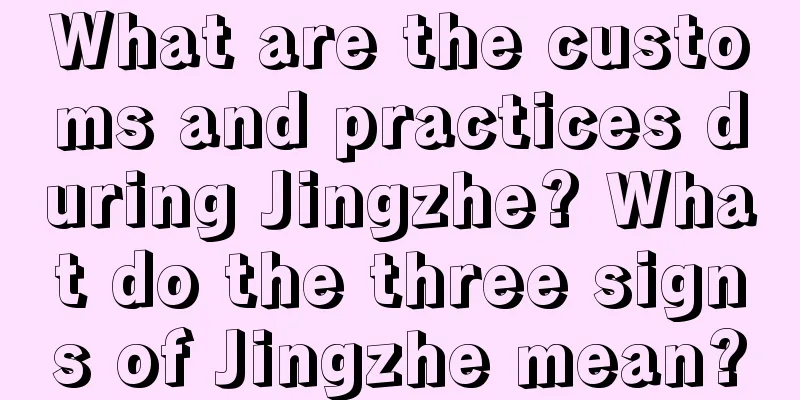
Introduction: The existence of solar terms has played a certain role in promoting the development of farming culture, and Jingzhe is one of the 24 solar terms. So what are the customs and traditions of Jingzhe? What do the three signs of Jingzhe mean? Follow the editor to learn more about it! The Fortune Teller website provides you with more information related to the first month of the lunar calendar in 2018. You are welcome to learn more about it!What are the customs and practices during Jingzhe?Jingzhe beats the villain <br /> Jingzhe symbolizes the beginning of February. There will be a thunderclap that awakens all hibernating snakes, insects, rats and ants. According to the folk custom of Jingzhe, the insects and ants in the house will respond to the thunder and look for food everywhere. Therefore, in ancient times, on the day of Jingzhe, people would hold fragrant incense and mugwort and fumigate the four corners of their homes to use the fragrance to drive away snakes, insects, mosquitoes, rats and musty smells. Over time, this gradually evolved into a habit of those who were unhappy slapping their opponents and driving away bad luck, which is the predecessor of "beating the villain".Therefore, an interesting scene would appear on the Waking of Insects day every year: a woman would hit a paper doll with a wooden slipper while chanting a spell to beat the paper doll: "I'll hit your head until you are so angry that you tremble, and I'll hit you until you vomit even if you eat your relatives." Eating pears during the Waking of Insects <br /> There is a folk custom of "eating pears during the Waking of Insects". There is no trace as to when the custom of eating pears during the Waking of Insects season originated, but the people of Qi County have such a story that has been passed down from generation to generation. Legend has it that the Qu family, a well-known Shanxi merchant family, was descended from Qu Ji, a native of Changzi County, Shangdang. In the early years of Hongwu in the Ming Dynasty, he brought his two sons, Xin and Yi, and traded Shangdang's Lu hemp and pears for Qi County's coarse cloth and red dates. He traveled back and forth between the two places to make a profit. Over time, he saved some money and settled down in Qi County. Waking of Insects Day: Offering sacrifices to the White Tiger <br /> The ancients regarded the White Tiger as the king of beasts, able to drive away evil and harm. Every year on the Waking of Insects Day, people offered sacrifices to the White Tiger to drive away all insects and protect themselves from pests. At the same time, among the twelve zodiac signs, some of them will be affected by the White Tiger and Heavenly Dog evil spirits. Later, it gradually evolved into the zodiac signs that offend the White Tiger and Heavenly Dog, or people who feel unlucky and have been offended by villains will worship the White Tiger on the Waking of Insects Day, praying for a peaceful and smooth year and to drive away villains and diseases. The so-called white tiger sacrifice refers to the worship of a white tiger drawn on paper. The paper tiger is usually yellow with black stripes, and has a pair of fangs painted at the corners of its mouth. Then you can hit it. Jingzhe Festival: Worship the Thunder God <br /> The solar term god of Jingzhe Festival is the Thunder God. As the god of the nine heavens, Leishen has a lofty status. There is a saying among Hakka people in various places: "Thunder God in the sky and uncle in the earth." On the one hand, this saying points out the prominent position of uncle in the family, and on the other hand, it also implies that Thunder God is an important god in heaven after Heaven God. In Taiwan, the solar term god of Jingzhe is "Leigong". According to legend, "Thunder God" is a big bird that carries an iron hammer with him at all times. It is he who uses the iron hammer to create rumbling thunder, awakening all things on earth, and people know that spring has come. What do the three signs of Jingzhe mean?Jingzhe was called "Qizhe" in ancient times. It is the third solar term in the 24 solar terms in the lunar calendar, marking the beginning of mid-spring. The ancient Chinese divided the Waking of Insects into three stages: "The first stage is when peach trees begin to bloom; the second stage is when orioles sing; the third stage is when eagles transform into doves." The flower corresponding to the first stage is peach blossom, the second stage is apricot blossom, and the third stage is rose.Summary: The above content is about [What are the customs and habits during Jingzhe? What do the three signs of Jingzhe mean? 】Problem analysis, hope it can help everyone! |
<<: What customs are there during Jingzhe? When is the Jingzhe solar term in 2018?
>>: Which celebrities were born during the Jingzhe period?
Recommend
Is it good to have a baby on the second day of the sixth lunar month in 2019? The fate of a boy born on the second day of the sixth lunar month
The fate of people born every day is different. So...
Is it a good day to move house on the eighth day of the second lunar month in 2019?
Shuimoxiansheng.com provides you with more conten...
What day of the week is Qingming Festival in 2018? What are the taboos during tomb sweeping on Qingming Festival?
Qingming Festival is one of China's important ...
Is it a good fortune for a baby born on the fourth day of the seventh lunar month? Is it good for parents?
Introduction: Children cannot choose their own tim...
What date is the eighth day of the eleventh lunar month in 2017? What day is it?
Winter months are cold, but when everything goes ...
Will the weather be hot on Chinese Valentine’s Day in 2021? Will it rain on Chinese Valentine’s Day?
Qixi Festival is China's Valentine's Day, ...
When is the Lantern Festival? What are its origins and activities?
The Lantern Festival actually refers to the folk a...
What are the taboos for visiting graves during the Spring Festival?
The Spring Festival is a big festival of reunion. ...
Is March 18th of the lunar calendar in 2022 an auspicious day? Is it suitable for travel?
Most of the third month of the lunar calendar has ...
Is it suitable to move to a new home on December 11, 2021? How to choose an auspicious day for moving?
The twelfth month of the lunar calendar is also kn...
Is the sixth day of the sixth lunar month in 2017 an auspicious day to burn incense and pray?
Introduction: Burning incense and praying for bles...
Is it a good idea to move and set up the bed on March 26, the day before Grain Rain in 2020? Will the temperature rise after Grain Rain?
Introduction: It is generally necessary to choose ...
A poem praising mothers, "Ten Ways to Repay Parents' Kindness", is it a good idea to get married on Mother's Day 2020?
Introduction: There are many poems in ancient and ...
Is New Year’s Day a good time to get married? What should I pay attention to when buying a diamond ring?
Introduction: New Year’s Day is a good day, so is ...
Detailed explanation of the close connection between balcony feng shui and wealth
Introduction: Balcony is an indispensable part of...

